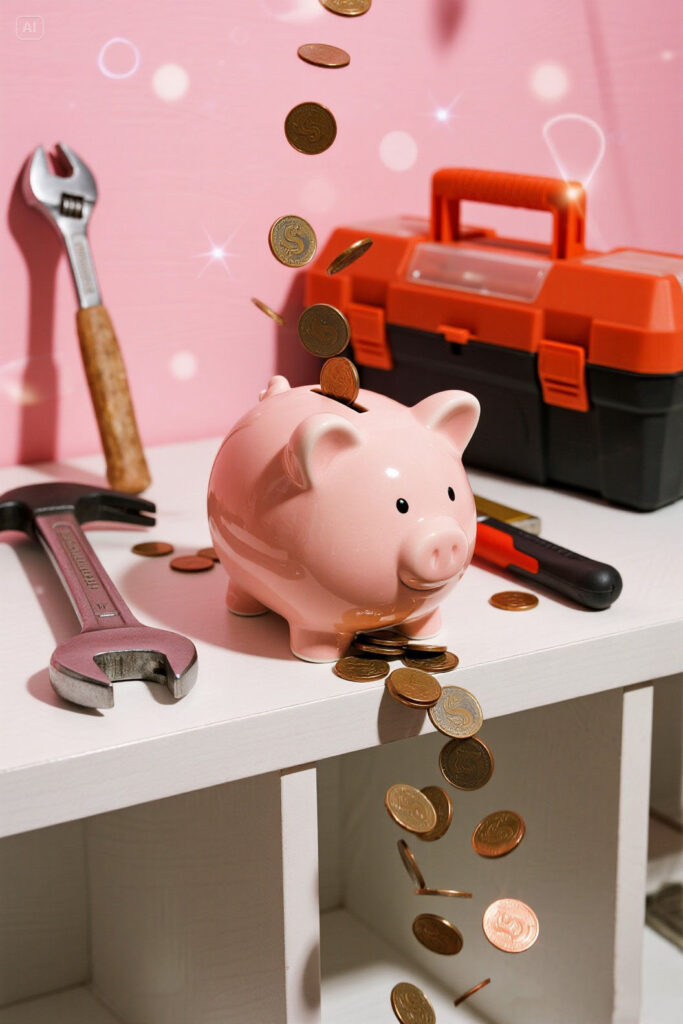Moving into a new home is one of the greatest milestones in one’s life. Whether it’s your very first house or you’re moving into a new home with your growing family, this big step can feel like a fresh start. Along with the joy of decorating, organizing, and customizing your new home according to your taste, the responsibility of managing the expenses and finances come along. From mortgage payments to utility bills, the expenses can pile up quickly, especially if you don’t have a plan to deal with them, which is exactly why it is essential to create a realistic budget and stick to it throughout the process. This article will explore some helpful budgeting tips for new homeowners, guiding them as they begin this exciting chapter in their new home.
Start With a Clear Financial Picture
The first step in managing money for your new home starts with having a clear picture of where you stand financially. Moving into a new place often brings excitement, but it can also tempt you into spending more than you may realize. This is exactly why it is important to have a clear financial picture before making any big decisions.
Take notes of your monthly income, your expenses, and debts, if there are any. This can help you align your spending habits with the money coming in every month, helping you avoid overspending and keeping you from overcommitting yourself financially.
Create a “New Home Budget”
A new home always brings along a whole new set of expenses that can sometimes feel overwhelming, which is why having a separate “new home budget” can really make life easier. Instead of mixing all your costs together and then wondering where the money went, try to divide things into clear categories like your mortgage or rent, the utility bills, furniture, décor, appliances, and the regular maintenance that every home eventually needs.
When you do this, you can actually see where your money is going, and it stops that uneasy feeling of money slipping away without you noticing. For example, you might realize that you’re spending a little too much on decorations while completely forgetting to plan ahead for electricity or heating costs, and that small realization can make a big difference.
Don’t Overspend on Furniture Right Away

One of the biggest mistakes new homeowners make is that they rush to fill in every room right away. While it’s natural to want your home to look complete, it’s essential to consider your finances as well.
You can focus on essentials first such as a comfortable bed, a sofa, or a dining table for the family, and slowly move toward the non-essential furniture. This approach not only protects your budget but it also gives you the time and space to rethink your choices and buy pieces you’ll truly love, rather than settling for something just to fill the space.
Account for Hidden Costs
When you first move in, it’s easy to focus on those big and obvious expenses like the mortgage or rent but new homeowners are often surprised by all the hidden costs that sneak in. Things like property taxes, HOA fees, trash collection, lawn care, and even small repair bills can add up quickly and if you don’t plan for them, they can feel like an unwanted shock each month.
That’s why it’s smart to include them in your budget right from the start. Even if some of these expenses don’t apply to your situation, knowing they might pop up helps you stay prepared. Planning for hidden costs means fewer surprises and more control, which keeps your finances steady and stress-free in the long run.
Prioritize Needs Over Wants
When setting up your new home, it’s easy to get carried away with aesthetic decor or high-tech gadgets, but before you start buying your wants, make sure your needs are covered. For instance, a working fridge, reliable stove, and furniture should take priority over trendy extras like smart lights or expensive art pieces.
Focusing on needs can ensure that your daily life is taken care of and is functional, on the other hand, wants can wait until your finances are ready. By taking this approach, your home will feel both practical and personal, and your wallet will thank you for being mindful with spending.
Build an Emergency Fund for Home Repairs

No matter how new your home is, unexpected expenses show when you least expect them, which is exactly why it is necessary to have an emergency fund in place. Whether it’s a burst pipe, a broken appliance, or sudden roof repair, having a safety net can help you deal with these unexpected expenses with confidence without having to put your entire budget off track.
You can start with a small and achievable target, maybe $500 or $1000, and build it up over time to cover a few months’ worth of essential expenses. Even a modest amount of money can give you peace of mind, knowing that you don’t have to rely on credit cards or loans can prevent you from stressing over the future.
Compare Utility Providers
Utility bills are a regular part of homeownership, but many people don’t realize that they may be paying more for these services than necessary. Another effective budgeting strategy is to take time to compare providers and see if you can get a better deal without sacrificing quality.
Even if the savings seem small, like $10 or $20 a month, these amounts can add up quickly and free up money for your other needs as well. Moreover, being mindful of how you use these utilities, like turning off lights, unplugging devices, or adjusting the thermostat can help reduce the costs even more.
DIY Where You Can
Whether it’s painting a wall, planting a garden, or even assembling the future, try not to hire professionals, instead, let your creative side unleash and get the work done with a bit of creativity and effort.
The best part about DIY projects is that they not only help you cut back on costs but they also provide you with a sense of accomplishment and pride. Not everything should be tackled on your own but those smaller projects are a fun and rewarding way to make your home feel truly yours, making this option a considerable budgeting tip for new homeowners.
Avoid Debt Traps
While setting up your new home, the temptation to finance Pinterest-worthy furniture or high-tech gadgets on credit may kick in, and although this may seem like an easy way to get everything quickly, it often leads to high-interest debt that becomes a long-term burden.
Instead, try to pay for items with cash or savings whenever possible, and if you must use credit, stick to purchases you can pay for right away to avoid carrying a balance over your shoulders. Avoiding debt traps can help you protect your financial health, letting you enjoy the comfort and blessing of your new home instead of burdening yourself with the pressure of repayments and debts.
Plan for Seasonal Expenses
Every season brings different expenses, and if you’re not well prepared to deal with these expenses, they can throw your entire budget off track. Whether it’s winter bringing higher heating bills, summer bringing higher cooling costs, or holiday seasons bringing along the expenses of decorations, planning ahead for these seasons can help you deal effectively with the finances, without having to use your entire budget. This approach can help you stay in control of your money and enjoy the season rather than stressing over the finances.
Use Second-Hand and Discount Options
When setting up a new home, it’s natural to want everything brand-new, but sometimes the smarter move is to mix in second-hand or discounted pieces that save you money without taking away from your home’s beauty or comfort. Thrift stores, online marketplaces, or clearance sales, can be full of hidden gems that look just as good as new items but cost only a fraction of the price.
You might be surprised to find that a solid wooden table from a thrift shop lasts longer than an expensive new one from a big store. By being open to second-hand or discounted options, you leave more room for important priorities, while also giving your home a unique touch.
Keep a Home Maintenance Calendar
One of the biggest money drains for homeowners often comes from neglecting small issues until they become large and costly repairs, which is why keeping a simple home maintenance calendar is such a wise budgeting habit. Scheduling regular checks for things like changing air filters, servicing appliances, cleaning gutters, or inspecting your plumbing and roof can help you spot problems early before they turn into emergencies. A maintenance calendar also takes the stress out of remembering everything, giving you peace of mind that your home is being cared for in a steady and manageable way.
Conclusion
Moving into a new home is one of life’s most exciting milestones, but it also comes with responsibilities that require thought, care, and planning. By creating a budget that prioritizes needs over wants, preparing for emergencies, being smart about utilities, and avoiding the traps of debt, you give yourself the chance to build a home that feels not just beautiful but financially secure. Little habits like shopping second-hand, keeping up with maintenance, and tracking your spending regularly can make a big difference in keeping your finances balanced and stress-free. At the end of the day, your home should be a place of comfort and peace, not a source of financial worry.
